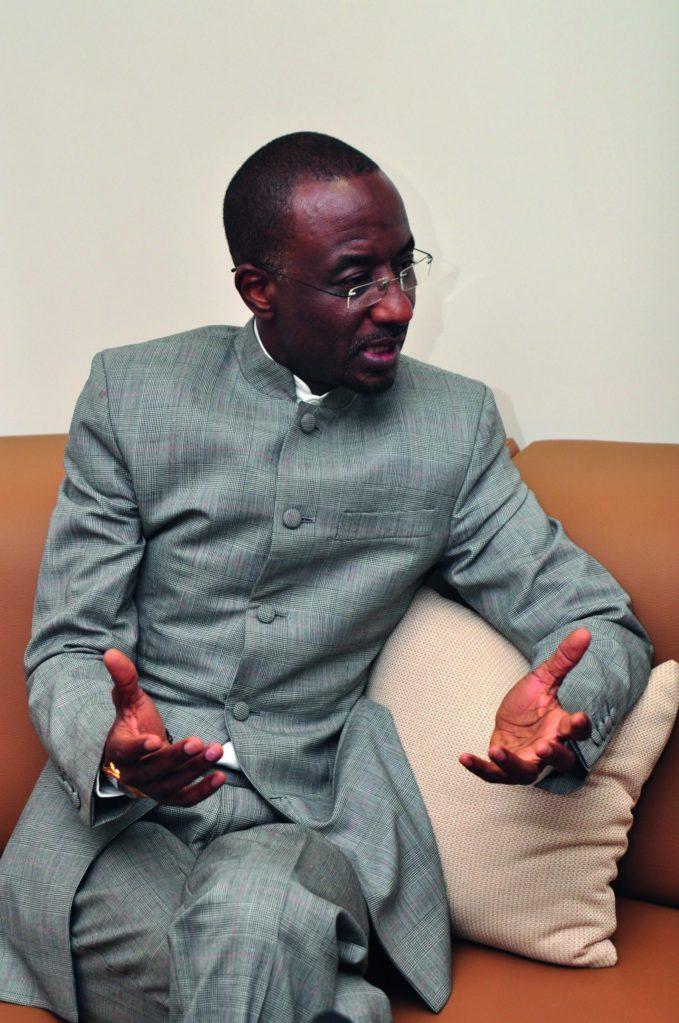“My name is Sanusi Lamido Sanusi, not Central Bank Governor. I enjoy my job but if you want me to quit, I will honorably quit.”
Those were the words of the Central Bank governor to a Nigerian Senate Committee in 2010. He was summoned to defend himself after attacking Parliament for consuming, in salaries and allowances, a quarter of what the Federal budget allocates to overhead costs.

Back then, he didn’t have to quit. In February, almost four years later, a statement from the office of President Goodluck Jonathan announced his suspension on account of far-reaching irregularities. The following day, a 13-page investigative report, dated June 2013, surfaced online. It was produced by the Financial Reporting Council of Nigeria, an obscure government agency. The damning report appears to contain the evidence hinted at as Sanusi’s suspension was announced.
In the months before his suspension, it became public knowledge that Sanusi had fallen out with Jonathan after the leak of a letter he addressed to the president alleging that tens of billions of dollars of oil revenue was unaccounted for. It was reported that Jonathan was deeply embarrassed by this. Sanusi confirmed that the president asked him to resign for the leak. He refused.
Loading...
Sanusi was appointed to the office in June 2009, five months after he was named CEO of First Bank of Nigeria, the country’s largest bank by assets. It was a critical time in the banking industry. The shock from the global economic meltdown was still reverberating across Nigeria. The stock market had crashed and there were rumors that many banks were only alive because the Central Bank was propping them up with cash.
One of the first things he did as governor was to carry out an audit of Nigeria’s 24 banks. Within his first four months, he sacked eight bank CEOs for malfeasance and poured nearly $4 billion worth of bailouts into the banks they ran. In boldness and scope it was the most momentous thing in Nigerian banking’s recent history. That action sealed Sanusi’s reputation as a no-nonsense banker. Most of what he did afterwards was viewed in that light. It was therefore not much of a surprise when he took on the powerful National Assembly a year later.
Under him, the Central Bank was widely respected. In January 2013, inflation fell to 9% and stayed in single digits until the news of Sanusi’s suspension broke. He was fiercely committed to the stability of the naira; regularly tinkering—with mixed success—with forex regulations to keep the exchange rate stable.
Time had him on its Most Influential Persons list in 2011. In his final months, foreign investors expressed concerns about the future of the Nigerian economy post-Sanusi.
He was born into aristocracy. His grandfather was an Emir of Kano, one of Nigeria’s oldest kingdoms; his father a foreign service bureaucrat who went on to become Nigeria’s ambassador to China in the 1970s.
“He adored Chairman Mao Zedong’s China, which for him was one in which the black African—seen everywhere else at the time as inferior—was worthy of respect,” Sanusi wrote in the Financial Times.
It would have been easy to conclude that Sanusi shared his father’s adoration for all things Chinese, especially when he announced, in 2011, that Nigeria was going to take the unprecedented step of diversifying some of its external reserves into Renminbi. But the central thesis of that piece was that Africa must recognize that China is in Africa not for African interests but its own.
For a central banker he was extremely outspoken.
He had always been that way. In the 2000s, he regularly wrote and published in newspapers and online forums ardent opinion pieces touching on some of Nigeria’s most contentious issues: politics, religion and ethnicity.
He was a polygamous Muslim prince—with a degree in Sharia and Islamic Studies from the International University of Africa in Sudan, earned several years after his Master’s degree in economics—who boldly championed women’s rights. In April last year, he disclosed that the Central Bank had mandated Nigeria’s banks to reserve more board and management positions for women.
Last year, he announced that he had no plans to run for a second term. By Nigerian standards it was another unusual move; public officials never turn down the opportunity of a second term. But it may simply have been that the hard-nosed Sanusi had realized that he didn’t stand a chance.
In the end, it was a terse statement that ended his time at the Central Bank. For someone who made his name as an insider critical of what he saw as the government’s penchant for undisciplined public spending, it was ironic that the millstone that pulled him down came labeled with the same failings. For now, however, no one knows how true those allegations are.
In his appraisal of his final moments, Sanusi was as clear-eyed as he was when he inherited a deeply dysfunctional banking system.
“This is about consequences for decisions I have taken. This is something that is long overdue. I am surprised it took them so long.”
Loading...
